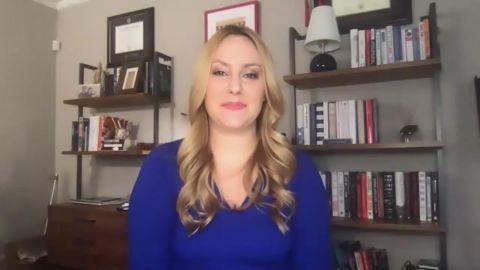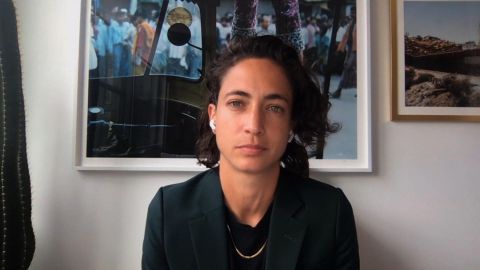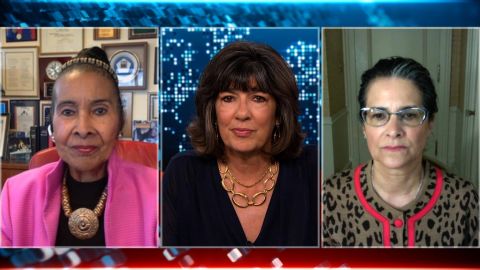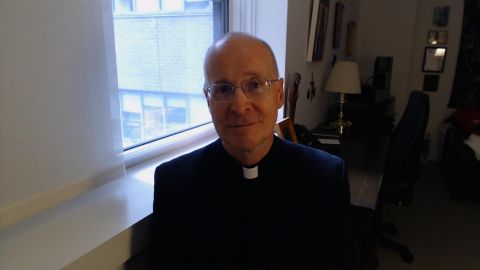Read Transcript EXPAND
CHRISTIANE AMANPOUR: Your premise is basically is there’s no such thing as the Hispanic vote. It’s not had a monolith, right? What do you want politicians and us to know?
PAOLA RAMOS, AUTHOR, “FINDING LATINX”: What I want them to know or I guess what I want us to know is that we don’t know Latinos, right. I think the idea that politicians have of Latinos is that of my father’s generation, right? Is that we speak Spanish, that when you talk to us, you talk to us about immigration. No. Is that our story — the heart of our story is the immigrant narrative and the reality is that I think we haven’t taken enough time to really dig deep in understanding what did the younger generation, right, what did folks like myself do with those rights that my parents fought for? You know, how did I become free enough to call myself a Latina and a queer person and a woman and how do all of these different identities recite themselves? And so, what I try and do in the book is to paint a picture of who we are, right. And when you look at us, right, when you allow everyone to sort of step out of the shadows, you start to understand that Latinos, yes, look like me, but you also see that there’s 3 million (INAUDIBLE) Latinos, right? You see that there’s over 1 million Latinos that identify as indigenous. You see that suddenly there’s more than 250,000 Latinos that are Muslim. You see that millennials like myself, among the entire millennial generation, Latinos are more likely than black folks and white folks to tell you that they’re queer, right. We care about immigration but we’re also navigating the criminal justice system. And so, the whole thesis that it is — we’re in the middle of telling that story and we ourselves don’t even know what that story looks like because there’s not enough research and attention and interest, I think, in understanding how we’ve developed and how we’ve changed.
AMANPOUR: So, that’s really changed, the different of focus for your generation to your father’s. You mentioned your father, so I will say that he is Jorge Ramos, a very well-known correspondent for Univision. We’ve had him on this show many times. And you’re right, he has talked about other issues that were important to his generation. What are you finding then as you travel around the United States, particularly in this moment of election? What are people saying they want and how — what will mobilize them to vote?
RAMOS: So, I think they are mobilized. I think we’re already seeing that Latinos are mobilize. I think right now with COVID-19, that was it for many young Latinos. I think a lot of young Latinos have seen — you know, 36,000 Latinos die because of this virus, right. These are young people that have seen their parents die, their abuelas die, they have seen that in the peak of the virus, almost 18 percent of Latinos were unemployed. And so, that’s an image you don’t forgot about, right. And so, I think, for many Latinas, for many young Latinas, it’s become a matter of life and death.
About This Episode EXPAND
Jesuit priest James Martin responds to Pope Francis’ public endorsement of same sex civil unions. Xernona Clayton and Martha S. Jones reflect on civil rights and the election. Paola Ramos discusses the Latinx vote and her new book. Journalist Jessica Huseman joins Michel Martin to debunk voting misconceptions.
LEARN MORE



